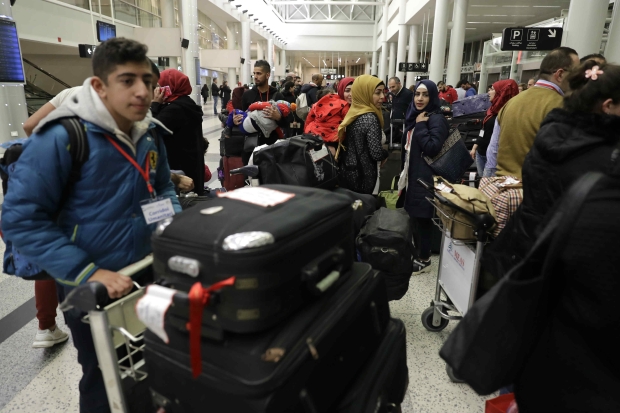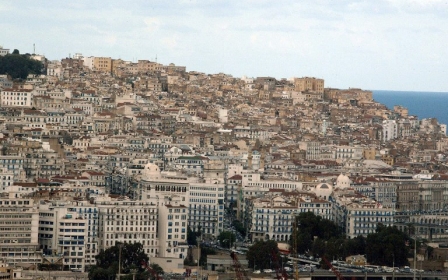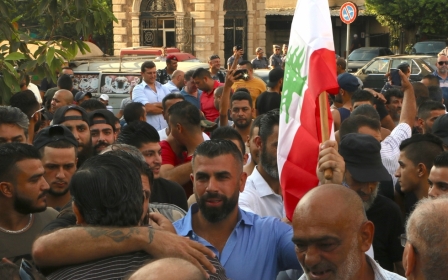Arabic press review: 'Saudi pressure' halts India visas for wounded Yemenis
Saudi forces India to deny Yemen’s war wounded
The Indian embassy in Oman has stopped granting medical visas to a number of Yemen’s war wounded after pressure from Saudi Arabia and the United Arab Emirates, a Yemeni source told Arabi21.
According to the website, 150 wounded national army soldiers from Taiz governorate in Yemen’s southwest travelled to Oman in August in preparation for being transferred to Indian hospitals for treatment.
However, a source close to the wounded soldiers, who spoke on condition of anonymity, said the Indian embassy stopped short of issuing special medical visas for all the soldiers, granting 90 but leaving another 60 in the lurch.
The source said the embassy "has been under pressure from Saudi Arabia and the UAE to stop issuing visas for unreasonable reasons. One of these reasons is that this campaign is organised by the Popular Resistance commander in Taiz, Hamoud Saeed al-Mikhlafi."
Mikhlafi, an influential figure who controls a pro-government militia and has ties with the Yemeni Congregation for Reform – Yemen’s branch of the Muslim Brotherhood, better known as al-Islah – has a fractious relationship with the Saudis and Emiratis, who are also allied to pro-government forces.
The source said the prominence the Indian campaign gave Mikhlafi, as well as the huge reception it got in Oman, "raised concerns in Riyadh and Abu Dhabi about the return of Mikhlavi to the scene”.
Saudi Arabia and the UAE “have already exerted severe pressure to get him out of the scene of confrontations in Taiz,” the source added.
Internal conflict causes chaos in Beirut airport
A conflict between two security bodies has trapped passengers and ground inspection operations to a halt at Beirut’s Rafic Hariri International Airport, details a reports by London-based newspaper al-Quds al-Arabi.
Hundreds of passengers crowded into the airport’s halls on Wednesday, a few weeks after a technical problem caused similar issues.
The chaos at Lebanon’s sole civilian international airport erupted due to a conflict over control of internal security checks between the army-affiliated airport security services and the Internal Security Services (ISF), the newspaper reported.
According to al-Quds al-Araby, this led to the army’s intervention. After a hiatus where all inspections at the airport stopped, ISF officers were removed and the army took over the checks instead. Movement through the airport returned to normal, the report said.
Interior Minister Nouhad Machnouk also arrived at the airport, al-Quds al-Araby said, where he spoke to reporters and stated that the dispute was caused by a misunderstanding that had been resolved.
He stressed that “he came to apologise to the passengers, because he is responsible for all the security officers at the airport”.
Al-Quds al-Araby quoted Lebanese MP Paula Yacoubian who, aghast at the situation, wondered on Twitter whether Lebanon was "a country or a bird".
Algerian doctors go viral in France
The French National Order of Doctors has recorded that about 4,404 Algerian doctors who graduated from universities in the North African country have been practicing in France since January 2017, according to the newspaper Echorouk El Yawmi.
Algerians represent a quarter of doctors born abroad and practicing in France, the Algiers-based daily said. When including doctors that graduated from French univiserisites, the number of Algerians practicing in France swells to 14,305.
The data is only related to the French National Order of Doctors, and does not include doctors who have been directly hired by hospitals under specific laws or for limited periods.
Victor Quintero, who is behind the research, said that the number of experienced doctors in France has declined since authorities began to implement stricter controls in the 1970s.
According to Echorouk El Yawmi, this has created a desire to attract foreign doctors, which has been made possible by new legislation. However, the paper notes this is an unstable situation.
Tunisians see fake news in local outlets
A new opinion poll conducted in Tunisia has shown a sharp decrease of trust in local media outlets, with 35 percent of respondents saying they definitely do not trust the ones in their country, according to Tunisian newspaper Assabah.
According to the opinion poll conducted by two specialist institutions, only two percent of the respondents blindly trust the media outlets and just five percent highly trust them, while the rest have medium trust in the media outlets or have nothing to do with them.
The opinion poll also found that 45 percent of Tunisians do not expect anything from the media outlets, while 35 percent expect them to provide accurate and reliable news.
Middle East Eye propose une couverture et une analyse indépendantes et incomparables du Moyen-Orient, de l’Afrique du Nord et d’autres régions du monde. Pour en savoir plus sur la reprise de ce contenu et les frais qui s’appliquent, veuillez remplir ce formulaire [en anglais]. Pour en savoir plus sur MEE, cliquez ici [en anglais].





